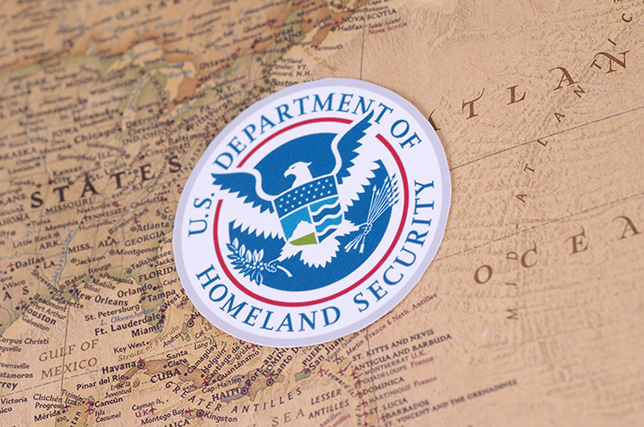
As Pandemic Wanes, DHS Warns of Potential Extremist Attacks
- By Matt Jones
- May 14, 2021
On Friday, May 14, the Department of Homeland Security released a National Terrorism Advisory System bulletin suggesting that as pandemic-related restrictions begin to ease, violent extremist groups may take the opportunity to strike.
“Violent extremists may seek to exploit the easing of COVID-19-related restrictions across the United States to conduct attacks against a broader range of targets after previous public capacity limits reduced opportunities for lethal attacks,” the bulletin read.
The bulletin comes on the heels of Thursday’s announcement from the CDC that vaccinated individuals are no longer required to wear masks indoors or outdoors (with certain restrictions). It did not cite or indicate any particular, individual threats. However, it warns of “threats that have evolved significantly and become increasingly complex and volatile…[including] those posed by domestic terrorists, individuals and groups engaged in grievance-based violence, and those inspired or influenced by foreign terrorists and other malign foreign influences.”
The document also warned that extremist individuals and groups have increasingly turned to social media and other online discussion forums to incite discord and promote their narratives and activities. Some of these online narratives have suggested violence against elected officials; government, law enforcement, religious, or commercial facilities; and more.
Similarly, it noted that while individuals or small groups may use encrypted messaging to cover any warning signs of an impending attack, messages from foreign terrorist groups like Al-Qaida and ISIS intend to foment homegrown violent extremists (HVEs) within the U.S.
DHS issued the bulletin on May 13, and it expires on Aug. 13. Officials noted that in response, they are partnering with the FBI to provide guidance to state, local, tribal and territorial (SLTT) law enforcement regarding potential threats, including intelligence assessments. They are also working with industry partners to identify, locate, and respond to individuals spreading disinformation and false narratives online. The DHS has prioritized stopping Domestic Violent Extremist threats within FEMA grants as a National Priority Area.
Finally, the bulletin provides guidelines for how individuals can help combat the threats. DHS requests that the public report suspicious activity to local law enforcement or FBI field offices. It suggests maintaining digital media literacy, building situational awareness, and staying informed of the latest updates from local authorities and public safety organizations.